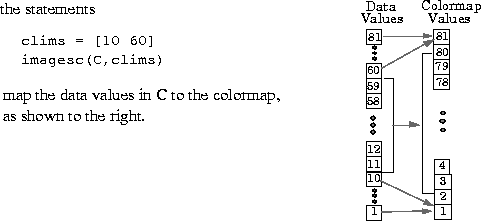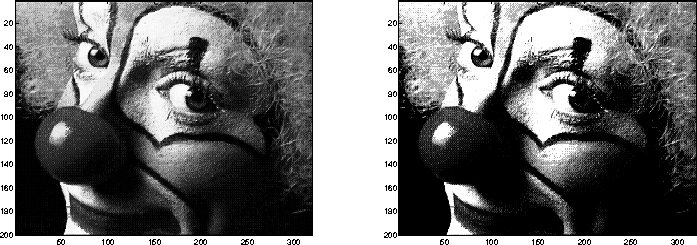Scale data and display an Image object
Syntax
imagesc(C)
imagesc(x,y,C)
imagesc(...,clims)
h = imagesc(...)
Description
The imagesc function scales image data to the full range of the current colormap and displays the image. (See the illustration on the following page.)
imagesc(C)
displays C as an image. Each element of C corresponds to a rectangular area in the image. The values of the elements of C are indices into the current colormap that determine the color of each patch.
imagesc(x,y,C)
displays C as an Image and specifies the bounds of the x- and y-axis with vectors x and y.
imagesc(...,clims)
normalizes the values in C to the range specified by clims and displays C as an Image. clims is a two-element vector that limits the range of data values in C. These values map to the full range of values in the current colormap.
h = imagesc(...)
returns the handle for an Image graphics object.
Remarks
x and y do not affect the elements in C; they only affect the annotation of the Axes. If length(x) > 2 or length(y) > 2, imagesc ignores all except the first and last elements of the respective vector.
Algorithm
imagesc creates an image with CDataMapping set to scaled, and sets the Axes CLim to the value passed in clims.
Examples
If the size of the current colormap is 81-by-3,

The left Image maps to the gray colormap using the statements
load clown
imagesc(X)
colormap(gray)
The right Image has values between 10 and 60 scaled to the full range of the gray colormap using the statements
load clown
clims = [10 60];
imagesc(X,clims)
colormap(gray)

See Also
image, colorbar
[ Previous | Help Desk | Next ]

